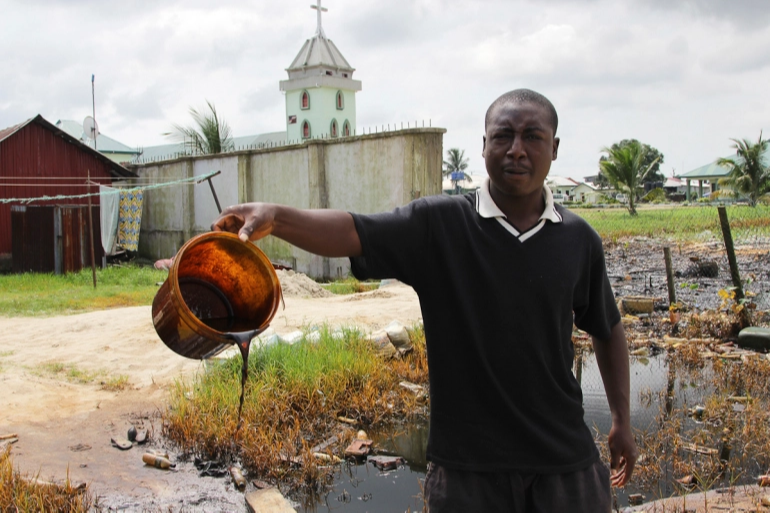
Shell discovered and started exploiting Nigeria’s vast oil reserves in the late 1950s and has faced heavy criticism from activists and local communities over spills. (Photo: Tife Owolabi/Reuters)
London, February 14 (RHC)-- The United Kingdom’s Supreme Court has ruled that a group of 42,500 Nigerian farmers and fishermen can sue Royal Dutch Shell in English courts after years of oil spills in the Niger Delta contaminated land and groundwater there.
Senior judges said there was an arguable case that UK-domiciled Shell, one of the world’s biggest energy companies, is responsible, in the latest test of whether multinationals can be held to account for the acts of overseas subsidiaries.
Represented by law firm Leigh Day, the group of Nigerians have argued that the parent company Shell owed them a duty of care because it either had significant control of, and was responsible for, its subsidiary SPDC. Shell countered that the court had no jurisdiction to try the claims.
“(The ruling) also represents a watershed moment in the accountability of multinational companies. Increasingly impoverished communities are seeking to hold powerful corporate actors to account and this judgement will significantly increase their ability to do so,” Daniel Leader, partner at Leigh Day, said on Friday. “UK common law is also used in countries like Canada, Australia and New Zealand so this is a very helpful precedent.”
The decision comes almost two years after a seminal ruling by the Supreme Court in a case involving mining firm Vedanta. The judgement allowed nearly 2,000 Zambian villagers to sue Vedanta in England for alleged pollution in Africa.
That move was seen as a victory for rural communities seeking to hold parent companies accountable for environmental disasters. Vedanta ultimately settled out of court in January. Members of Nigeria’s Ogale and Bille communities allege their lives and health have suffered because repeated oil spills have contaminated the land, swamps, groundwater and waterways and that there has been no adequate cleaning or remediation.
SPDC is the operator of oil pipelines in a joint venture between the Nigerian National Petroleum Corporation which holds a 55 percent stake, Shell which holds 30 percent, France’s Total with 10 percent and Italy’s Eni with five percent.
A Shell spokesman said the decision was disappointing. “Regardless of the cause of a spill, SPDC cleans up and remediates. It also works hard to prevent these sabotage spills, by using technology, increasing surveillance and by promoting alternative livelihoods for those who might damage pipes and equipment,” Shell said.
Shell CEO Ben van Beurden said last week that the firm would take “another hard look at its onshore oil operations” in the West African country.
In 2015, Shell agreed to pay out 55 million pounds ($83.4 million) to the Bodo community in Nigeria in compensation for two oil spills, which was the largest ever out-of-court settlement relating to Nigerian oil spills.
Shell discovered and started exploiting Nigeria’s vast oil reserves in the late 1950s and has faced heavy criticism from activists and local communities over spills and for the company’s close ties to government security forces.

